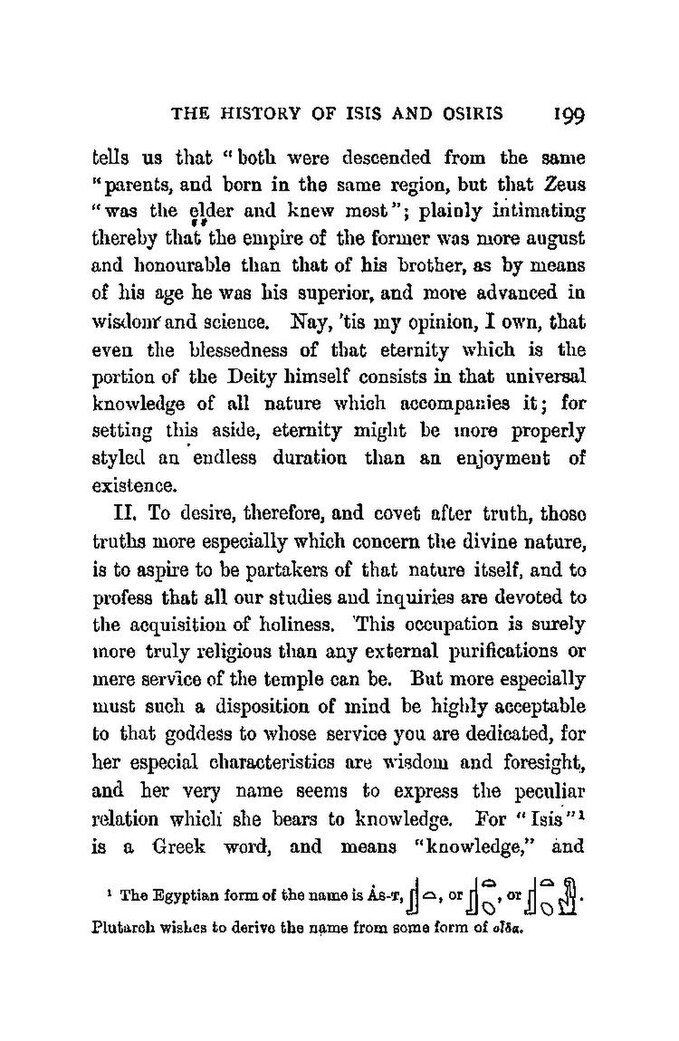THE HISTORY OF ISIS AND OSIRIS
199
tells us that "both were descended from the same parents, and born in the same region, but that Zeus was the elder and knew most"; plainly intimating thereby that the empire of the former was more august and honourable than that of his brother, as by means of his age he was his superior, and more advanced in wisdom and science. Nay, 'tis my opinion, I own, that even the blessedness of that eternity which is the portion of the Deity himself consists in that universal knowledge of all nature which accompanies it; for setting this aside, eternity might be more properly styled an endless duration than an enjoyment of existence.
II. To desire, therefore, and covet after truth, those truths more especially which concern the divine nature, is to aspire to be partakers of that nature itself, and to profess that all our studies and inquiries are devoted to the acquisition of holiness. This occupation is surely more truly religious than any external purifications or mere service of the temple can be. But more especially must such a disposition of mind be highly acceptable to that goddess to whose service you are dedicated, for her especial characteristics are wisdom and foresight, and her very name seems to express the peculiar relation which she bears to knowledge. For "Isis"[1] is a Greek word, and means "knowledge," and
- ↑ The Egyptian form of the name is Ȧs-t, , or , or . Plutarch wishes to derive the name from some form of οἳδα.

![X1 [t] t](/w/extensions/wikihiero/img/hiero_X1.png?f2a8c)

![X1 [t] t](/w/extensions/wikihiero/img/hiero_X1.png?f2a8c)


![X1 [t] t](/w/extensions/wikihiero/img/hiero_X1.png?f2a8c)


